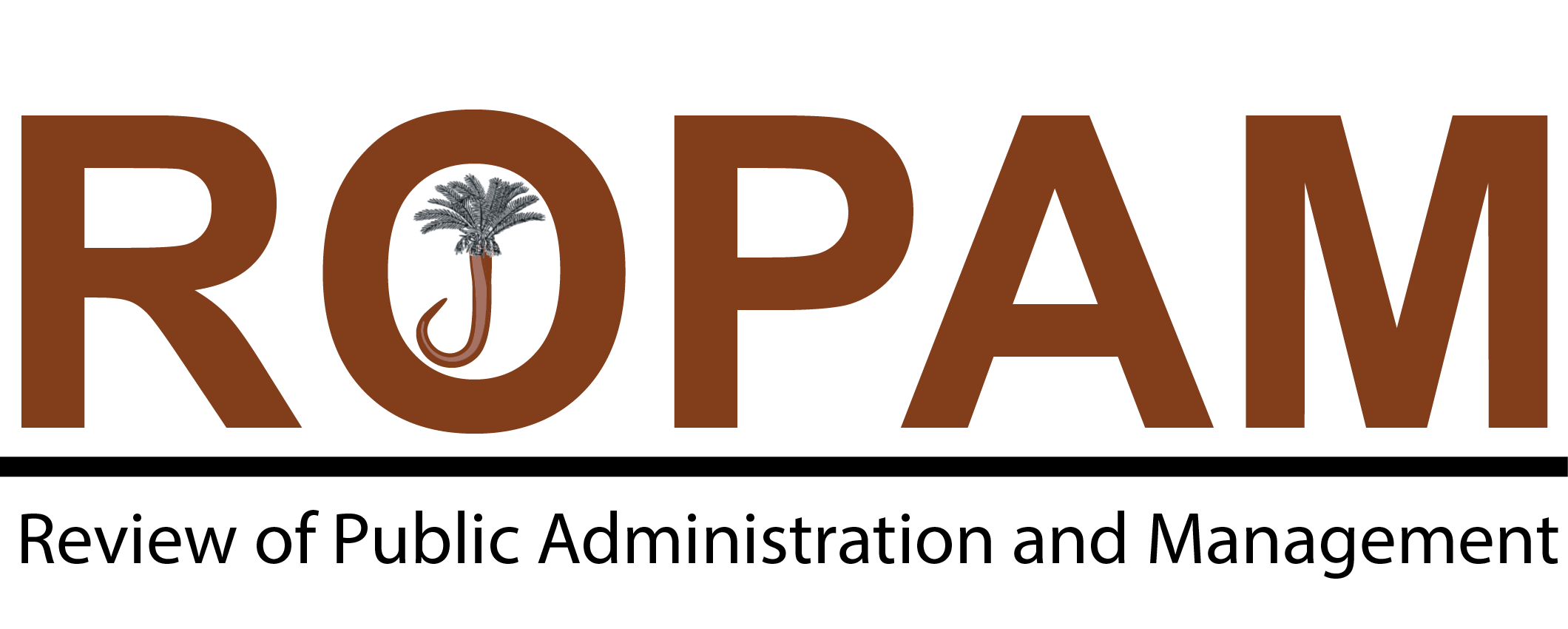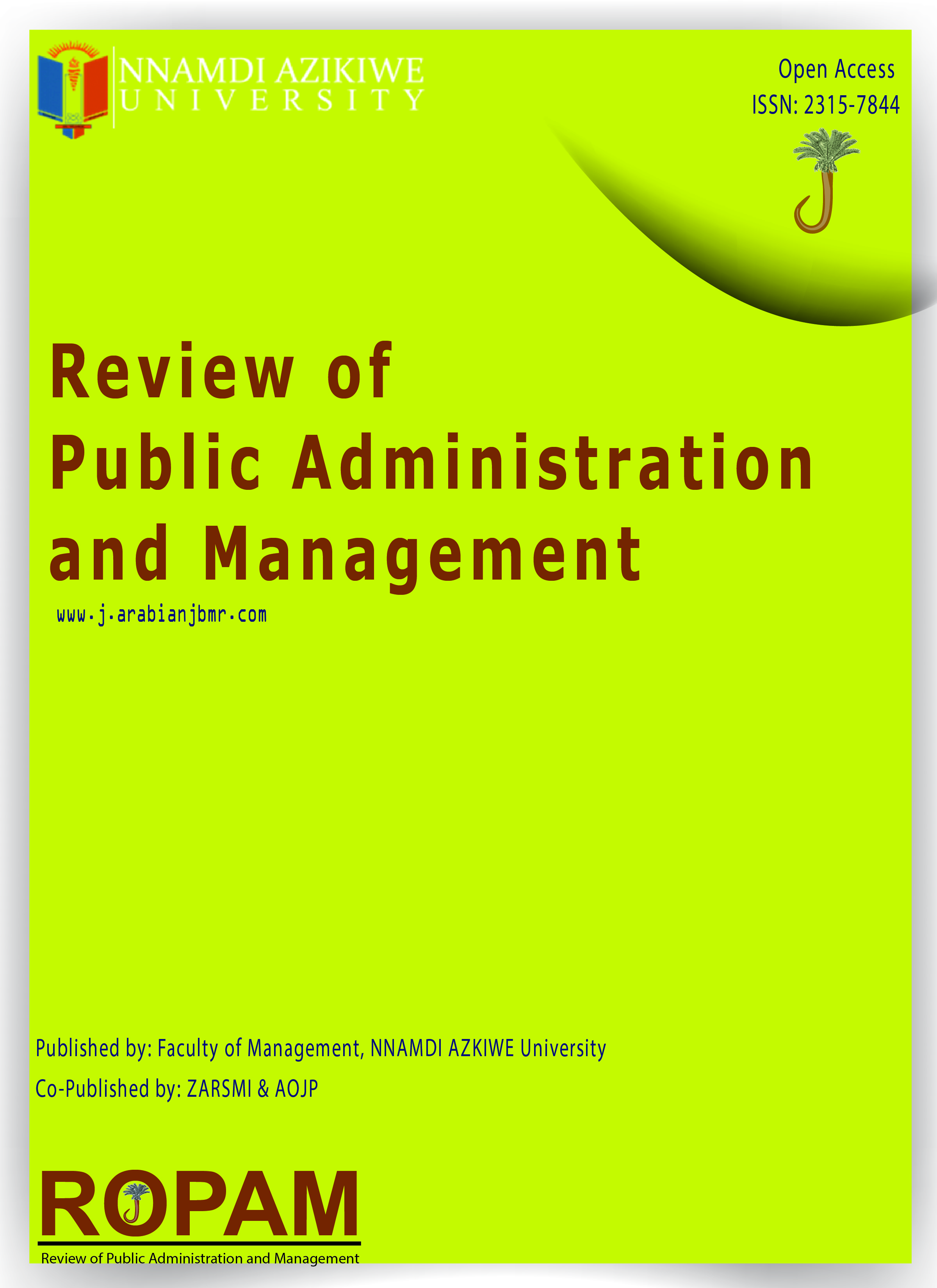Dynamic interaction between natural resources and financial development in Nigeria: A disaggregated approach
Keywords:
Financial Development, Nigeria, NARDL, Natural Resources.Abstract
This study examined the dynamic interaction between disaggregated natural resource rents on financial development in Nigeria during the period 1980–2019. The study applied both traditional and modern unit root tests that accounts for structural breaks to examine the properties of the variables. The study also employed Nonlinear Autoregressive Distributed Lag (NARDL) model. The results indicated the presence of long run equilibrium relationship among the variables of the study. The results from both the long run and shortrun analysis revealed that oil and natural gas rents negatively affect financial development in Nigeria, thereby supporting resource curse hypothesis. However, the findings in respect of forest rent, mineral rent, institutional quality, economic growth and coal rents revealed a positive and insignificant impact on financial development in the longrun, opposing the resource curse hypothesis, while in the shortrun, economic growth, mineral and coal rents affect financial development negatively. The policy implication of the findings is that, different types of natural resource rents have different impact on Nigeria's financial development as evidenced in this study. It may be deduced from the fact that most of the resource rents sourced from the oil and natural gas resources have not been used judiciously during the period under study, hence the adverse effect on the nation's financial development. The study therefore recommends that, government should use the natural resource rents judiciously in order to stimulate growth, which will translate into financial development of the country. This is achievable through reinvesting the proceeds in other sectors of the economy that are growth enhancing such as the financial and manufacturing sectors of the economy.
Downloads
Published
How to Cite
Issue
Section
License
Copyright (c) 2023 Muhammed Shamwil, Abubakar Bala, Bello Ibrahim, Shehu Garba Saleh, Bashir Bappayaya, Nayuni Charles Sabe

This work is licensed under a Creative Commons Attribution 4.0 International License.






